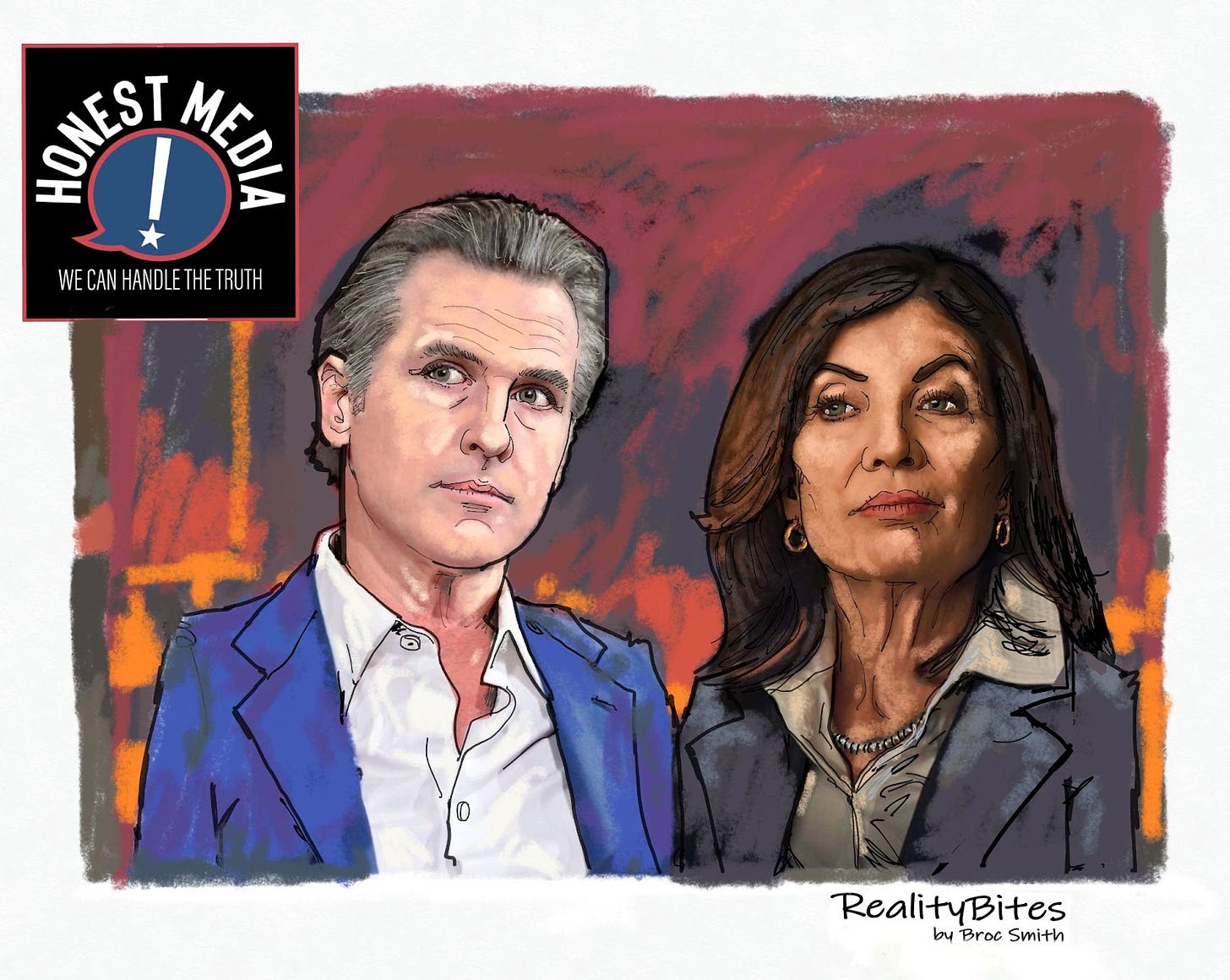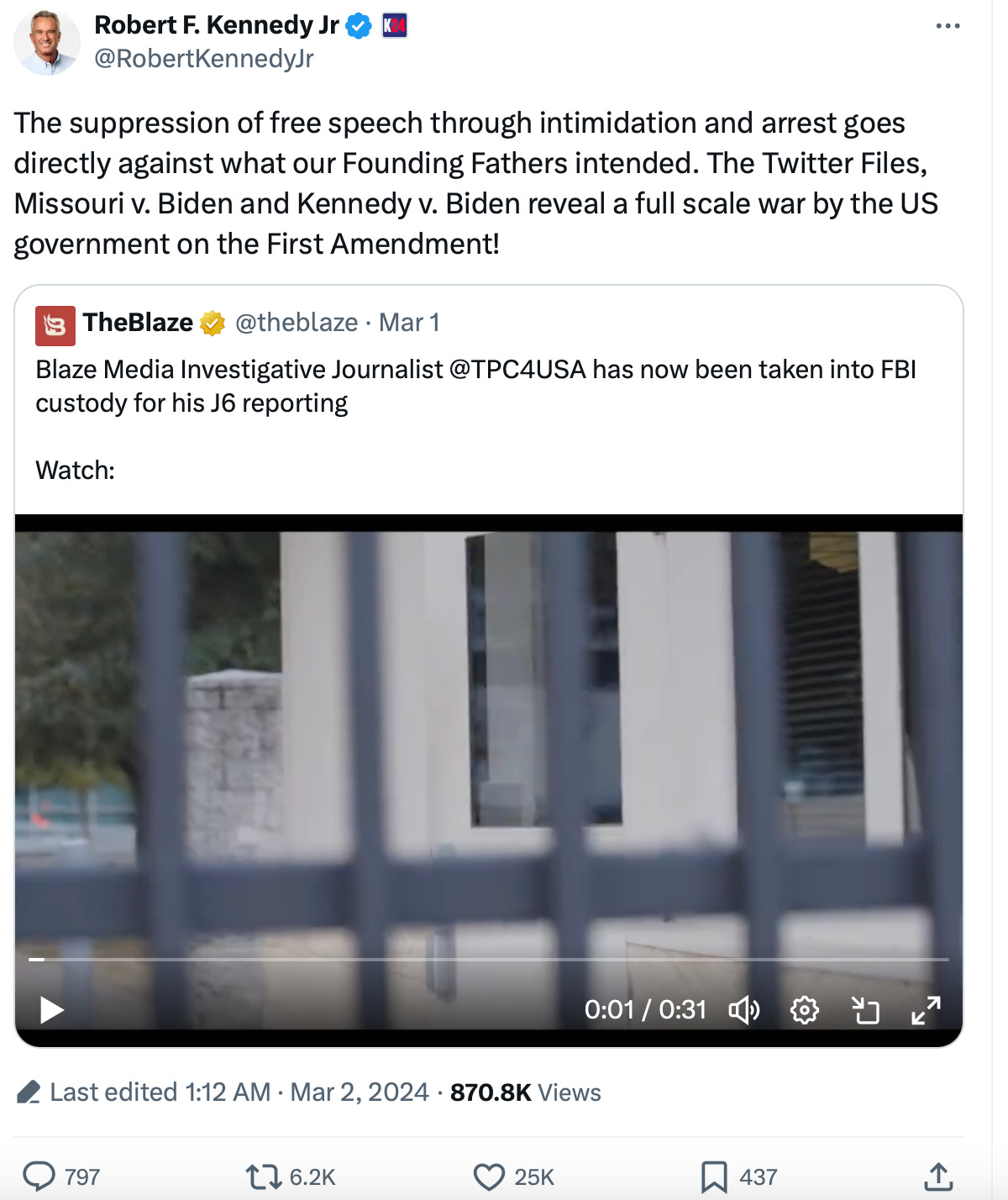In November of last year, Honest Media reported that New York Governor Kathy Hochul was setting up her own social media censorship surveillance efforts. This move happened after a state law requiring social media companies to censor speech was temporarily halted by the courts, and still remains enjoined today.
The law required social media companies to require reporting of very broadly defined “hate speech” shortly after the horrifying mass shooting spree that happened in Governor Hochul’s hometown of Buffalo, as published by the New York Attorney General’s office. However, a coalition of groups has sued the State of New York and courts have issued an injunction against the law, meaning it cannot currently be implemented.
One of those groups, FIRE, was even able to succeed in October 2023 at convincing Attorney General Leticia James to rescind a letter she sent to social media platform Rumble calling for censorship of content providers, which was in violation of the court-ordered injunction. FIRE, as explained on its website, was founded to defend fundamental rights on college campuses before rebranding as the Foundation for Individual Rights and Expression to cover off-campus free speech as well.
The Electronic Frontier Foundation (EFF) along with the ACLU filed a “friend of the court” brief claiming the state law violates freedom of speech. Since its founding in 1990, the EFF claims to be "the leading nonprofit organization defending civil liberties in the digital world.” Regarding the law, EFF said:
We agree that many internet users want the online platforms they use to moderate certain hateful speech; but those decisions must be made by the platforms themselves, not the government. Platforms’ editorial freedom is staunchly protected by the First Amendment; to allow government to manipulate social media curation for its own purposes threatens fundamental freedoms. Therefore, to protect our online spaces, we must strictly scrutinize all government attempts to co-opt platforms’ content moderation policies—whether by preventing moderation, as in Texas and Florida, or by compelling moderation, as New York has done here.
EFF taking a stand against intervention from state actors on social media platforms is notable given the increasing collusion between Big Tech and Big Government, as investigated by Honest Media. Laws were passed in Texas and Florida that made it illegal to deplatform anyone off of social media if they were seeking to be elected to office, but other states are trying to play a stronger role in controlling speech on social media. EFF doesn’t want any direct form of government moderation taking place in the practices of private social media companies.
EFF has also written an amicus brief in support of the plaintiffs in the critical Missouri v. Biden case (now named Murthy v. Missouri), but the ACLU has chosen to remain quiet in that federal case.
New York, on the other hand, is not the only state attempting to censor online content, as revealed by former State Department deputy assistant secretary Mike Benz in an extensive interview with Tucker Carlson last week. States across the country, including California (which is also being challenged by EFF), are starting to enact laws to censor social media platforms as the federal government is having a harder time performing that function because of the Missouri v. Biden case and increasing resistance to censorship from the GOP in Congress.
As investigated in a Substack piece by Dr. Robert Malone, Benz stated to Carlson:
… they have lost a lot of their federal government powers to do this same censorship operation they had been doing from 2018 to 2022. In part because the House (of Representatives) has totally turned on them, in part because of the media, in part because Missouri v Biden (aka Murthy v. Missouri), which won a slam dunk case, actually banning government censorship at the trial court and appellate court levels. It is now before the Supreme Court, they've now moved into two strategies.
One of them is state level censorship laws. California just passed a new law, which the censorship industry totally drove from start to finish around, they call it platform accountability and transparency, which is basically forcing Elon Musk to give over the kind of narrative mapping data that these CIA conduits and Pentagon cutouts were using to create these weapons of mass deletion, these abilities to just censor everything at scale because they had all the internal platform data. Elon Musk took that away. [emphasis added]
Benz also detailed how the European Union has passed a law requiring censorship on social media platforms, showing that this issue is not just national, but global. He singles out Elon Musk presumably because he is the only major social media mogul who has shown staunch resistance to acts of censorship, but these laws will impact all platforms.
On March 18, the crucial Murthy v. Missouri will be heard by SCOTUS and the fate of online censorship from federal authorities will be decided by the highest court in the land. Even if the plaintiffs win and federal censorship measures are struck down, state-level censorship is increasingly filling in to play the same role, as Hochul demonstrates in New York.
And while these state laws are also subject to legal challenges, as explained above, the frightening reality may be that tech companies are now crafting increasingly mature artificial intelligence systems that are being laid in place to automate the censorship operations just ahead of the 2024 presidential election.






Screw them!